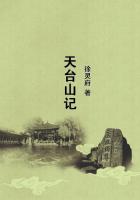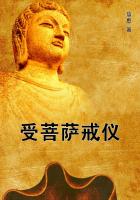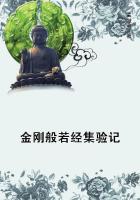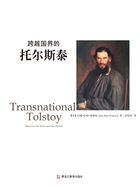the writer is not fond of argument, and he will admit that such was the case; he admits that it was a love of principle, rather than an over-regard for gentility, which prevented the hero from accepting, when on the brink of starvation, an ungenteel though lucrative office, an office which, the writer begs leave to observe, many a person with a great regard for gentility, and no particular regard for principle, would in a similar strait have accepted; for when did a mere love for gentility keep a person from being a dirty scoundrel, when the alternatives were "either be a dirty scoundrel or starve?" One thing, however, is certain, which is, that Lavengro did not accept the office, which if a love for what is low had been his ruling passion he certainly would have done; consequently, he refuses to do one thing which no genteel person would willingly do, even as he does many things which every genteel person would gladly do, for example, speaks Italian, rides on horseback, associates with a fashionable young man, dines with a rich genius, et cetera.
Yet - and it cannot be minced - he and gentility with regard to many things are at strange divergency; he shrinks from many things at which gentility placidly hums a tune, or approvingly simpers, and does some things at which gentility positively shrinks.He will not run into debt for clothes or lodgings, which he might do without any scandal to gentility;he will not receive money from Francis Ardry, and go to Brighton with the sister of Annette Le Noir, though there is nothing ungenteel in borrowing money from a friend, even when you never intend to repay him, and something poignantly genteel in going to a watering-place with a gay young Frenchwoman; but he has no objection, after raising twenty pounds by the sale of that extraordinary work "Joseph Sell,"to set off into the country, mend kettles under hedge-rows, and make pony and donkey shoes in a dingle.Here, perhaps, some plain, well-meaning person will cry - and with much apparent justice - how can the writer justify him in this act? What motive, save a love for what is low, could induce him to do such a thing? Would the writer have everybody who is in need of recreation go into the country, mend kettles under hedges, and make pony shoes in dingles? To such an observation the writer would answer, that Lavengro had an excellent motive in doing what he did, but that the writer is not so unreasonable as to wish everybody to do the same.It is not everybody who can mend kettles.It is not everybody who is in similar circumstances to those in which Lavengro was.Lavengro flies from London and hack authorship, and takes to the roads from fear of consumption; it is expensive to put up at inns, and even at public-houses, and Lavengro has not much money; so he buys a tinker's cart and apparatus, and sets up as tinker, and subsequently as blacksmith; a person living in a tent, or in anything else, must do something or go mad; Lavengro had a mind, as he himself well knew, with some slight tendency to madness, and had he not employed himself, he must have gone wild; so to employ himself he drew upon one of his resources, the only one available at the time.Authorship had nearly killed him, he was sick of reading, and had besides no books; but he possessed the rudiments of an art akin to tinkering; he knew something of smithery, having served a kind of apprenticeship in Ireland to a fairy smith; so he draws upon his smithery to enable him to acquire tinkering, he speedily acquires that craft, even as he had speedily acquired Welsh, owing to its connection with Irish, which language he possessed; and with tinkering he amuses himself until he lays it aside to resume smithery.A man who has an innocent resource, has quite as much right to draw upon it in need, as he has upon a banker in whose hands he has placed a sum; Lavengro turns to advantage, under particular circumstances, a certain resource which he has, but people who are not so forlorn as Lavengro, and have not served the same apprenticeship which he had, are not advised to follow his example.Surely he was better employed in plying the trades of tinker and smith than in having recourse to vice, in running after milk-maids, for example.Running after milk-maids is by no means an ungenteel rural diversion; but let any one ask some respectable casuist (the Bishop of London for example), whether Lavengro was not far better employed, when in the country, at tinkering and smithery than he would have been in running after all the milk-maids in Cheshire, though tinkering is in general considered a very ungenteel employment, and smithery little better, notwithstanding that an Orcadian poet, who wrote in Norse about eight hundred years ago, reckons the latter among nine noble arts which he possessed, naming it along with playing at chess, on the harp, and ravelling runes, or as the original has it, "treading runes" - that is, compressing them into a small compass by mingling one letter with another, even as the Turkish caligraphists ravel the Arabic letters, more especially those who write talismans.
"Nine arts have I, all noble;















